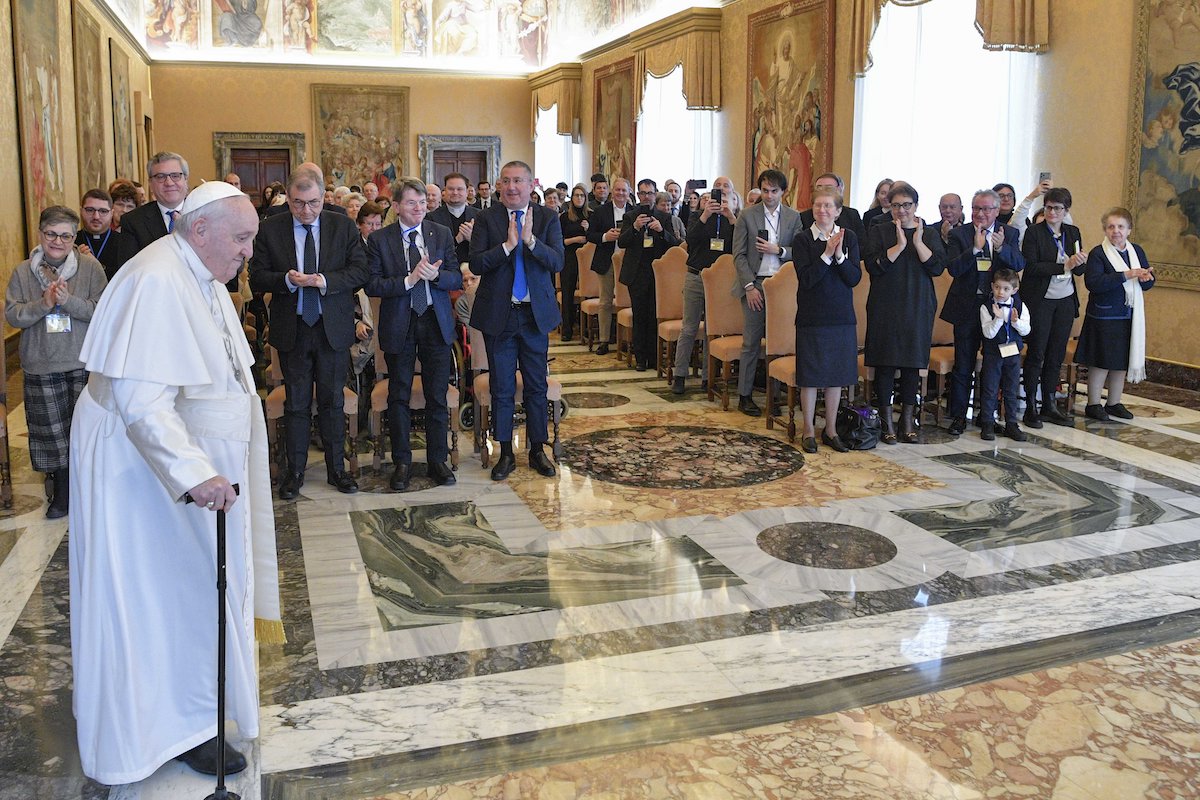By Carol Glatz, Catholic News Service
VATICAN CITY (CNS) — Taking in and welcoming others must be done without expecting anything from them in return, Pope Francis said.
It is “this gratuitousness” that creates a culture of friendship and fraternity, he said March 9 at the Vatican.
“We often talk about the contribution that migrants give or can give to the communities that receive them. This is true and important. But the fundamental criterion lies not in how useful the person is, but in the intrinsic value” of the human person, he said.
People deserve “to be welcomed not so much for what they have or can have or can give, but for who they are,” the pope said during an audience with people taking part in a weeklong course offered by the Fraterna Domus retreat center in Sacrofano outside of Rome.
The course is meant for anyone involved in hospitality or reception services of all kinds — including tourism, migrant and refugee assistance, and religious retreats — and was designed to cover ethical, religious, legal and economic principles and formation.
The pope praised the way the course merged theory and practice with moments of reflection that are “inseparable from the work in the field.”
“While listening and studying,” he said, “you keep in mind the faces, the stories, the concrete problems and share them with the lecturers and in the discussion groups and this is so important.”
Sharing a number of passages from “Fratelli Tutti,” his encyclical on fraternity and social friendship, the pope said “love calls for growth in openness and the ability to accept others as part of a continuing adventure that makes every periphery converge in a greater sense of mutual belonging.” As Jesus said, “You are all brothers.”
The more a community is “imbued with this attitude of openness and welcome,” he said, the more it becomes capable of “integrating all its members, even those who, for various reasons, are ‘existential foreigners’ or ‘hidden exiles’ as sometimes, for example, people with disabilities or the elderly find themselves to be.”
“The aspect of gratuitousness is essential to generate fraternity and social friendship,” the pope said. “Only a social and political culture that readily and ‘gratuitously’ welcomes others will have a future.”







